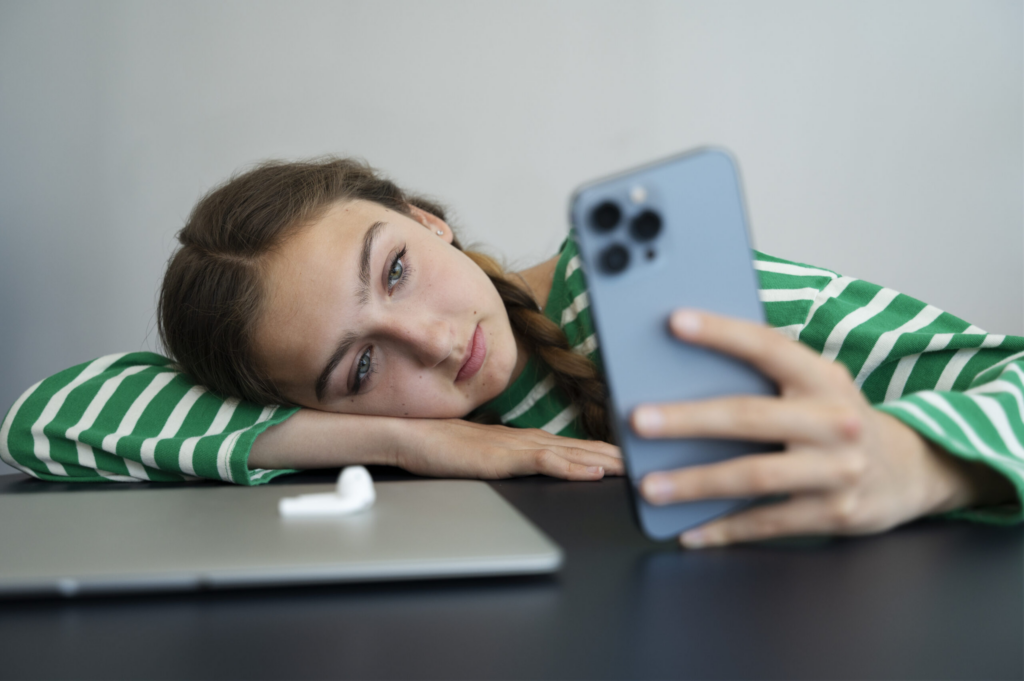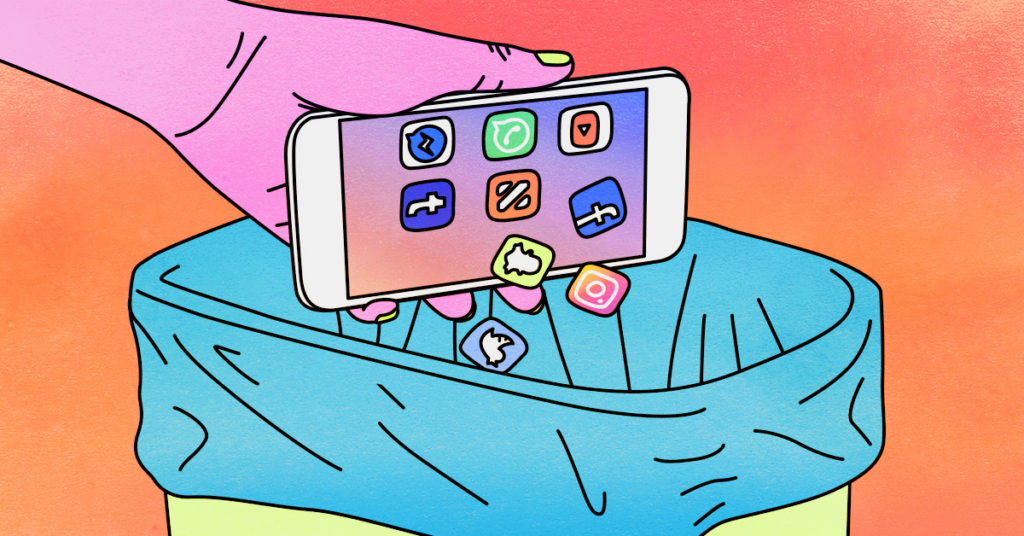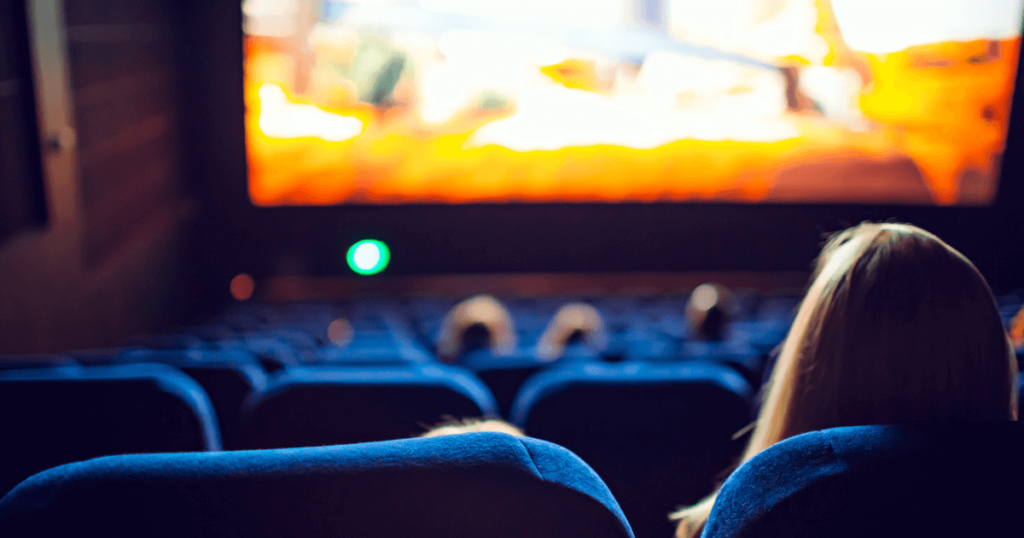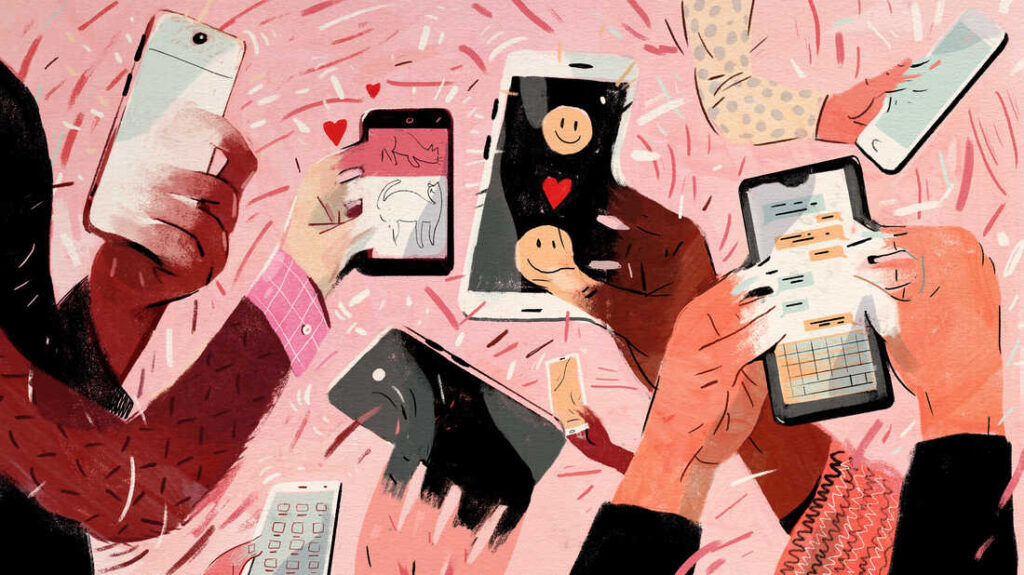In today’s hyper-connected era, the compulsion to incessantly glance at our phones has reached unprecedented levels. Our entire lives seem to unfold in the digital realm – from conducting business transactions to mindlessly swiping through endless feeds, each interaction floods our brains with dopamine. Even arranging a simple meet-up with friends now hinges on the presence of a cellphone. Many of us find ourselves ensnared in the grip of phone addiction, making the prospect of tearing ourselves away from these devices a daunting task. It’s not solely our fault; these devices are ingeniously designed to captivate our attention. However, reclaiming control over our lives begins with a conscious decision to resist the allure of the screen and engage in activities that liberate us from this addiction, ushering us back into the tangible experiences of the real world.
WHY ARE WE ADDICTED TO OUR PHONES?

Losing your phone evokes an anxious sensation akin to being deprived of an addictive indulgence. It’s not merely misplacing a device; it’s a sense of disconnection from an integral part of oneself. Our phones have become extensions of our identities, serving as portals to constant communication with friends, acquaintances, and even strangers. Beyond mere utility, they offer a plethora of entertainment options, enriching our lives with joy and diversion across various platforms.
When we’re separated from this extension of ourselves, we often experience a disorienting sense of disconnection. But how does this dependence on our phones develop in the first place? It’s rooted in the production of two powerful hormones: oxytocin and dopamine. These biochemicals, commonly dubbed as the “feel-good chemicals,” typically surge during activities like physical exercise or intimate encounters.
Yet, in today’s digital age, they’re also triggered by the seemingly innocuous acts of receiving a social media like, watching a humorous video, or conquering a game on our smartphones (any Wordle enthusiasts here?). These fleeting moments of euphoria are readily accessible compared to the physical exertion required for traditional means of dopamine release like jogging or cycling. Thus, the allure of endlessly scrolling through apps becomes all too enticing.
However, the transient nature of these dopamine and oxytocin spikes is undeniable—they eventually dissipate, leaving us to grapple with the aftermath.
START WITH A SOCIAL MEDIA CLEANSE

To successfully detach from your phone and ensure a prolonged absence, consider temporarily severing ties with your social media apps. Keeping them accessible only fuels the temptation to constantly check your device, regardless of the activity’s allure. Opting for a social media cleanse doesn’t necessitate a permanent commitment; instead, take the proactive step of removing these apps from your phone before diving into screen-free pursuits. By doing so, you’ll pave the way for a more fulfilling and uninterrupted experience.
HAVE A CRAFTING SESSION

One effective strategy to reduce phone usage while engaged in an activity is to occupy your hands with another task. By doing so, you create a physical barrier that prevents you from impulsively reaching for your phone. This intentional interruption forces you to pause your current task to access your phone, disrupting the flow you’ve established during your creative endeavor. Embracing this flow state not only enhances your productivity but also triggers the release of dopamine and other “happy chemicals,” akin to the gratification derived from phone use. As a result, the temptation to constantly check your phone diminishes, allowing you to fully immerse yourself in the present moment and your chosen activity.
GO TO THE MOVIES

Engaging in activities free from the constant interruption of our phones can be refreshing, and few are as effortlessly phone-free as watching a movie. The social etiquette of the cinema dictates that whipping out your phone is a surefire way to invite disapproving glances from fellow moviegoers. This unspoken rule alone is often enough to dissuade us from even considering a quick check of our devices during the two-hour cinematic experience. Moreover, having invested in a ticket and being immersed in the captivating world unfolding on the big screen, the allure of our phones naturally fades into the background (assuming, of course, that the movie holds our attention). So, for a blissful couple of hours, we find ourselves happily liberated from the digital distractions that so often dominate our daily lives.
DO A PUZZLE

Engaging in puzzles bears resemblance to the art of crafting, involving the tactile engagement of hands that easily guides one into a state of flow. It serves as an effective diversion from incessant phone usage, offering a steady release of dopamine each time a puzzle piece finds its place, thereby fueling the desire to persist and relish those delightful surges of happiness. Unlike the fleeting gratification and subsequent remorse often associated with prolonged social media scrolling, puzzling provides a tangible outcome, a feeling of accomplishment upon completion. It offers a refuge from the unpredictable emotional turbulence induced by prolonged screen immersion, presenting a tangible manifestation of time well spent rather than the hollow aftermath of digital absorption.
READ A BOOK

Discover a captivating book that sparks your curiosity and keeps you eagerly turning the pages, whether it’s a compelling non-fiction exploration or a gripping work of fiction. Thrillers are particularly recommended for their ability to immerse you swiftly in their suspenseful narratives, ensuring an exhilarating reading experience. As you delve deeper into the storyline, each revelation brings a surge of dopamine, serotonin, and other happy neurotransmitters, enhancing your enjoyment. Opt for the tactile pleasure of a physical book or the convenience of an e-reader to fully immerse yourself in the reading experience. While reading apps on your phone offer convenience, they also present the temptation of distractions with a simple swipe, potentially interrupting your literary journey.
TAKE A NATURE WALK

Stepping outside and engaging in physical activity might require more effort compared to idly scrolling through your phone, but the rewards are far greater, and there’s no need for any guilt. Whether you opt for a leisurely stroll with a friend or embark on a solo adventure along a nearby nature trail, the choice is yours to tailor the experience to your desired level of outdoor intensity. You could opt for a casual saunter through a local park or challenge yourself by tackling a rugged mountain path to test your endurance.
While it’s advisable to have your phone handy for safety reasons, think of it as a basic tool rather than a distraction. Utilize it for emergencies, navigation assistance, and practical purposes, treating it as a temporary flip phone to minimize temptation. Resist the urge to succumb to social media distractions and instead commit to being fully present in the natural surroundings you’re exploring. By embracing this mindset, you’ll truly immerse yourself in the beauty of the great outdoors and reap the mental and physical benefits it has to offer.
SMALL STEPS CAN ADD UP
Empower yourself by embracing activities that detach you from the incessant pull of your phone. Begin with simple steps, like engaging in brief pursuits that don’t involve constant phone checking. Gradually extend these moments sans technology, challenging yourself to go longer without its grasp. As you break free from the reliance on your phone, you’ll transform it from a crutch into a mere tool, enhancing rather than defining your existence. Eventually, you’ll find yourself not pondering how to curb phone addiction, but rather forgetting its whereabouts entirely as it fades from the forefront of your mind.


